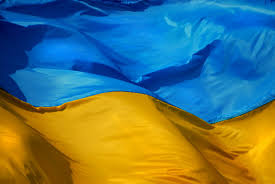
Charlemagne
Keep the door open
How Europe nearly lost Ukraine—but may yet regain it
“We are not in a bidding
war with Russia” is the
refrain of senior Europeans whenever they talk
about the turmoil in Ukraine.
In fact, they sometimes are. Now events
in Kiev, particularly cack-handed attempts to suppress
its protests by force, have
given the European Union an unexpected chance
to try again
with the offer that went
spectacularly wrong two months ago.
Indeed, the EU could yet help
to pull Ukraine
back from civil strife and
salvage its battered European ideals.
November’s Vilnius summit
with the EU’s eastern neighbours
was meant to be crowned
by the signing
of an association
agreement and all-encompassing trade deal with Ukraine.
It would have extended to
it most of
the EU’s single-market rules. But President
Viktor Yanukovych unexpectedly rejected the deal and
turned instead to Russia, which
had threatened to squeeze out
imports and also offered a $15 billion loan and
cheaper gas—all in hopes of
luring Ukraine into its own
Eurasian customs union.
Outraged Ukrainians took over Kiev’s
Independence Square (Maidan), rather as in the
Orange revolution in 2004 (also directed
at Mr Yanukovych).
The president’s attempts to deal
with the challenge with violence only made
things worse. In January Mr
Yanukovych pushed through repressive legislation, copied from Russian laws,
and tried to clear the
streets by force. This led
to bigger protests, the death
of several demonstrators, concerted pressure (rather more effectively from America than
from the EU) and a semi-revolt by oligarchs. Taken
aback, Mr Yanukovych sacked his prime minister,
offered a conditional amnesty and is
now seeking a deal with his
foes.
Thanks to this,
the EU is back in the
game. Its foreign-policy chief, Catherine Ashton, went to
Kiev this week to encourage
a deal between Mr Yanukovych and
the opposition. So did Victoria
Nuland, America’s assistant secretary of state for
European affairs. The two weeks
of the Sochi
Olympics hosted by Russia’s president,
Vladimir Putin, may offer a window
for diplomacy to pull Ukraine
back from what Leonid Kravchuk,
a former president, has called “the
brink of civil war”. Thereafter,
Mr Yanukovych may feel less
restrained from more violent tactics.
The Europeans disagree over what
went wrong. To some, Mr
Yanukovych played them as fools,
using the EU deal to improve
Russia’s offer. To others, the
EU was wrong to insist on
the release of Yulia Tymoshenko,
a former prime minister jailed by Mr Yanukovych.
A third theory holds that the
EU offer lacked a crucial element: the promise of
eventual EU membership. A fourth says the
very notion of an “eastern
partnership” was misconceived. It was born out
of the failure
in 2008 to put Ukraine and
Georgia on the road to
NATO membership. Extending the EU’s economic
border, as opposed to NATO’s
military one, was seen as
less provocative. But Russia came
to treat it as equally
objectionable.
All these debates
have now been overtaken by events. The
brutishness of Mr Yanukovych and
the feistiness of the protesters
(despite less savoury radicals in their midst)
means the key question is
no longer the terms of
any deal with the EU but
the nature of government in
Ukraine. Is Mr Yanukovych a man the EU can
do business with? Little matter.
Lady Ashton is focusing on
a constitutional settlement
to reduce the president’s authority, and possibly early elections. Was it a mistake to
stake all on the flawed
Mrs Tymoshenko? She is now
a sideshow. The immediate issue is the proposed
amnesty for jailed protesters. Did the EU make
the right offer? Irrelevant for now. The
association agreement has been set
on one side.
Attention is now
on a new economic package from the EU and
the IMF. This is not necessarily
dependent on the association agreement, but rather on a new
government undertaking economic reform. “Our offer is
easier,” says one European minister.
“Our condition is that Ukraine
should start fixing its economy.
Russia’s condition is that Ukraine
should become a vassal.”
Europe’s task
None of this
offers certainty that Ukraine can
resolve its conflict or become
a modern European democracy. Russia cares more about
losing Ukraine than the EU cares
about winning it. Still, the
sight of protesters flying the EU’s blue
flag with gold stars over
the snow-covered barricades with a fervour unseen in the drizzle
of Brussels should give Europeans
pause for thought. If the
cause of Europe has any
meaning, it is surely the
idea of promoting
liberty and democracy, and overcoming divisions, across the continent.
It must ultimately
be for Ukrainians
to decide where they stand
between east and west. But
beyond immediate crisis management, the EU can do
two things. Right now it
should make clear, like the
Americans, that it will impose
sanctions on those who use
force to steal the country’s
wealth, and on oligarchs who
support a rotten system. Even without
Belarus-style visa bans and asset seizures,
much can already be done:
Schengen countries can blacklist individuals,
and money-laundering rules require banks
to watch out for suspicious
activity in the accounts of
“politically exposed persons”. In the
medium term, Europe needs fully
integrated energy markets and grids,
including Ukraine’s, to reduce the
scope for Russian blackmail.
In the longer
term, Europe can give Ukrainians
new hope by keeping the
door open to Ukraine’s membership
of the EU. True, enlargement is not a popular
cause in times of crisis.
But Ukraine will not become
a candidate in the near future.
The EU needs only to reaffirm
article 49 of its own treaty:
any European state that abides
by European values is eligible
to join. The “perspective” of membership will
not solve everything. But it helps reform-minded countries to undergo
wrenching economic and political change.
Europe is not omnipotent. But it still
offers a potent symbol to its
neighbours.
Economist.com/blogs/charlemagne
Feb 8 2014
|
